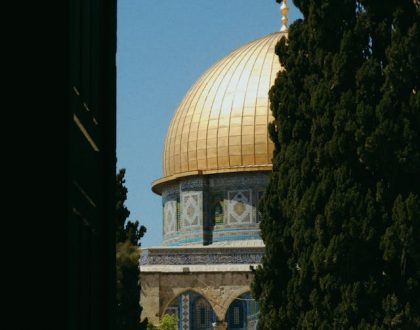Lessons from Badr – Tarawih reflections 13

Source of protection: Surat al-Baqarah and Surat Ale ‘Imran
‘Recite the two bright ones, al-Baqarah and Surat Ale ‘Imran, for on the Day of Resurrection they will come as two clouds or two shades.’ [Muslim]
In this hadith, the Prophet Muhammad ﷺ referred to Surat al-Baqarah and Surat Ale Imran as the zahrawan, two bright surahs that have a special light. He said that on the Day of Judgement, the people who recited them will have two clouds above their heads, shading them from the intense heat of the Sun which will be unbearably close to the Earth on that day. People will be sweating from the oppressive heat – except those who will have VIP treatment from Allah due to certain good deeds. Among these is reciting Quran, especially these two surahs. The Prophet ﷺ is encouraging us to recite these two surahs regularly, because of how much wisdom they contain. Just like anything else you read or consume: the more you are engaged in reading these surahs, the more they rub off on you.
We also know that these surahs bring protection, so keep playing and reciting it in your house to protect you from jinn. The Prophet ﷺ said:
‘Whoever recites Surat al-Baqarah at night the devils will not enter his house for three nights, and whoever recites it in the day, the rebellious devils will not enter his house for three days.’ [Ibn Hibban]
Revelation of Surat Ale ‘Imran
Almost half of Surat Ale ‘Imran is about Christians. In the same way as around 40% of Surat al-Baqarah talks about Bani Israil, this is another surah dedicated to the People of the Book.
It was revealed when the Prophet Muhammad ﷺ received a delegation from Najran (now Yemen) of around sixty people. This included several priests who came to meet him and sat debating on the nature of Prophet Eesa (peace be upon him) and such topics.
The Battle of Badr took place in Ramadan
‘There was a sign for you in the two groups who confronted each other: One group fighting in the way of Allah, and the other disbelieving, seeing themselves as twice their number, with open eyes. And Allah gives strength with His help to whomsoever He wills. Indeed, there is a lesson therein for those who have eyes.’ [3:13]
This ayah is describing the Battle of Badr, which took place on 17th Ramadan. After the battle, this day was also known as Yawm Al-Furqan, the Day of the Clarification when Allah distinguished between truth and falsehood.
Several companions, including Ibn Mas’ud, ‘Ali, and Zaid ibn Thabit (may Allah be pleased with them) sought Laylatul Qadr on 17th Ramadan every year after this.
The Battle of Badr was in the first year that the Muslims were ever fasting in Ramadan, but they didn’t fast on the day of the battle.
‘Umar (may Allah be pleased with him) narrated that,
‘We fought in two battles along with the Messenger of Allah during Ramadan; the Day of Badr, and the Conquest of Makkah, so we broke our fast during them.’ [Ibn Majah]
This is because the priority in the moment was fighting the enemy, and the fasting could be repayed later.
Lessons from Badr
The two groups fought, and Allah made the Muslims victorious.
When you look at the situation objectively, it is clear that it should have been a losing battle for the Companions. There was a huge difference between the two groups both in number and equipment: the Muslims were only 313 people, with only two or three horses. But when imaan and reliance on Allah come into play, that makes all the difference.
Prophet Muhammad ﷺ wasn’t intending to have a battle. The Quraysh had confiscated all the wealth and property of the Muslims when they left Makkah, so their intention was only to raid the caravan that was passing, which was led by Abu Sufyan, and take back their rightful property. But when the Quraysh heard of their intention, it became a full-blown battle, and the rest is history.
The lesson to learn is that a small group with reliance on Allah, and who have prepared as much as possible, will get what is theirs by the will of Allah. Inshallah Allah will grant victory to the oppressed in Palestine.
Based on the reflections of Shaykh Haytham Tamim
Transcribed by Hana Khan
- If you miss Isha and wake up at Fajr should you pray Isha (qada) or wait until after Fajr?
- Can you pray maghrib if it’s nearly Isha?
- If you wake up as the sun is rising should you pray Fajr?
- Should you delay performing Isha?
- Inspirational women in Islam
Recommended Posts

Inspirational women in Islam
May 01, 2024

The forces of Allah and the fate of the falsifiers
April 26, 2024

How Allah strengthens the hearts of believers
April 19, 2024
